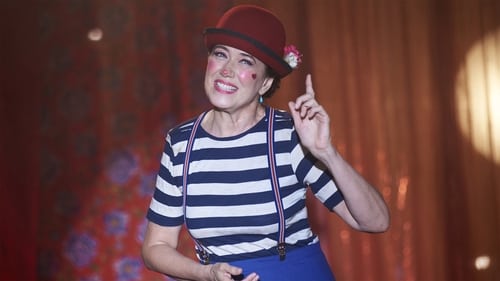
Editor
Pregnant women from the paradise island of Fernando de Noronha, 360km off the Brazilian coast, are separated from their families and workplaces and sent to the mainland 12 weeks before giving birth. Pressure is brought upon those who resist. Their babies are not made welcome in their forebears’ lands. Without any reasonable explanation, the government has been denying the right of permanent residence to children of native people. Meanwhile, tourism is attracting more and more celebrities and outside investors to the island.

Editor
The documentary O Samba é Primo do Jazz will show the musical trajectory of Alcione Dias Nazareth, the great Brazilian interpreter, from her musical references, her insertion in the world of music and her relationship with family and friends. The biopic brings us closer to a relaxed, fun and matriarchal Alcione with her life and artistic work.

Editor
Maria, a virgin spinster, is trying magical superstitions to find a husband. In her dialogue with the marriage saint, she implores for a companion. Her father offered her as a bride to Saint Djalminha, if the saint saved her during her complicated birth which ended in the death of her mother. Since then Maria has lived this dilemma: revered and loved by the residents and pilgrims that believe she is a miracle worker; she is desperate to live a great love, with a flesh and blood prospect with real passionate desire. She asks for a sign from the heavens, a clue on how to find a crumb of love when a gypsy arrives on scene saying "someone who loves her very much, but she doesn't know will come from afar on an artists' caravan." Maria can't take the solitude she is living anymore and decides "to find Mr. Right," no matter how much it may cost.

Additional Editor
The impeachment and removal from office of Brazilian President Dilma Rousseff in 2016 was triggered by a corruption scandal involving, among others, her then vice-president Michel Temer. Director Maria Augusta Ramos follows the trial against Rousseff from the point of view of her defence team. This is a courtroom drama that unfolds slowly: the appearances of the various parties gradually turn the proceedings into something akin to theatre. Inside the courtroom, grand emotions are played to full effect whilst, on the other side of the doors, lobbyists and supporters pace the corridors. Meanwhile, outside, in front of Brasília’s modernist government buildings, demonstrators are chanting like a Greek chorus. Only the main character, Rousseff herself, remains professional and aloof.

Editor
In the ‘land without evil’ humans will find peace, according to the Guaraní. Not far from Rio de Janeiro, they have built a village where they can live according to their customs and their children can grow up equally influenced by ancient traditions and the modern world. The uncommented observation of their everyday lives full of games, laughter and music enables the audience to pose questions – and to search for their own right answers.

Script
An affective approach to the relationship between Mário Pedrosa, one of the greatest art critics of the 20th century, and some of the most important Brazilian artists takes the viewer on a journey through Brazilian art from the 1950s.

Executive Producer
An affective approach to the relationship between Mário Pedrosa, one of the greatest art critics of the 20th century, and some of the most important Brazilian artists takes the viewer on a journey through Brazilian art from the 1950s.

Director
An affective approach to the relationship between Mário Pedrosa, one of the greatest art critics of the 20th century, and some of the most important Brazilian artists takes the viewer on a journey through Brazilian art from the 1950s.






